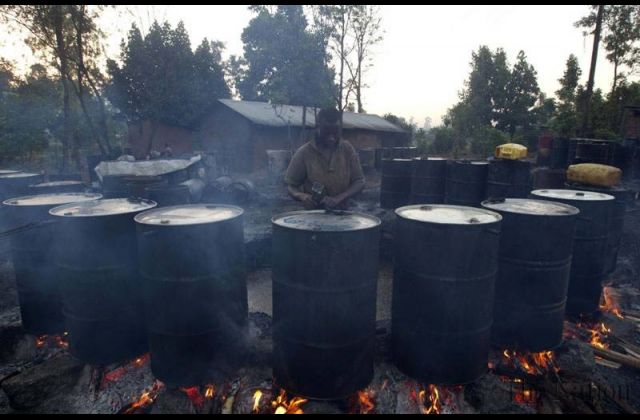
Local brew, Waragi could serve as a cheaper, sustainable clean cooking energy if home brewers were given better technologies of producing it, Scientists at Makerere University say.
According to the Centre for Research in Energy and Energy Conservation (CREEC), located in the College of Engineering, Design and Technology (CEDAT), crude waragi can serve well as a bioethanol cooking fuel and substitute for petroleum.
CREEC together with Uganda Industrial Research Institute (UIRI) have carried out studies on the potential of locally produced as a clean cooking fuel.
Most rural places in Uganda are known for producing raw alcohol or waragi from sugarcane molasses, cassava and banana. In 2004, Uganda ranked 8th globally ahead of Germany and Australia among the 'World's 10 best-drinking nations'. Crude waragi consumption featured.
According to the World Health Organization, Ugandans consume 23.7 litres of alcohol per capita and 89 percent of this is brewed locally in homes and illegally sold. A 2007 report by the International Chronic Poverty Research Centre reveals that 29 percent of all households in Uganda engage in distilling waragi.
CREEC says brewers could be encouraged to produce ethanol as a source of clean energy that would also save lives.
In Uganda over 97% of the over 37 million population still rely heavily on pollution-producing cook stoves. It is estimated that 13,200 people die annually from indoor smoke inhalation.
Claire Turyahebwa, a Bio-Energy Officer at CREEC says clean ethanol-burning stoves are healthier than traditional charcoal stoves or the traditional three stone fire places.
She says one of the missing links has been the absence of an effective stove which could be used to promote bioethanol. Turyahebwa however says a new effective cook stove of Moto Sawa imported from Kenya is being promoted alongside the bioethanol. It can cook two litres of water in just nine minutes from the blue flame from burning ethanol.
Comments (0)
📌 By commenting, you agree to follow these rules. Let’s keep HowweBiz a safe and vibrant place for music lovers!












